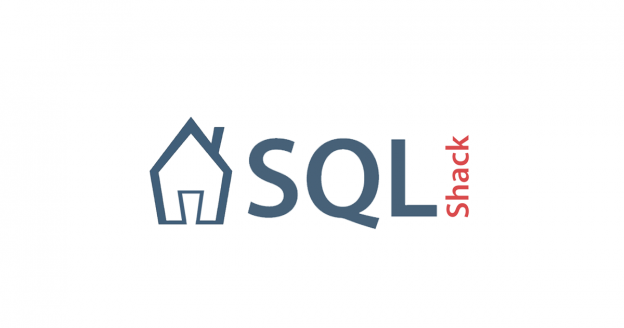In this article, we will show how to prepare yourself for the Microsoft Azure Fundamentals exam (AZ-900).
Exam Overview
The Microsoft Azure Fundamentals certificate exam measures your foundational level knowledge on four main areas. This includes:
- The different cloud computing concepts, with relative questions weight in the exam up to 20%
- How to describe the main Azure services, with relative questions weight in the exam up to 35%
- Describing Azure Security, privacy, compliance, and trust, with relative questions weight in the exam up to 30%
- Describing Azure pricing and support, with relative questions weight in the exam up to 25%
If you are new to the Microsoft Azure world, or you plan to take any Associate or Expert level Azure certificate, it is highly recommended to start with the Microsoft Azure Fundamentals exam. For more information, check this article, It is time to specify your Microsoft Certifications path.
You can easily schedule the exam from the Microsoft Azure Fundamentals Exam page.
Certificate Candidate
The Microsoft Azure Fundamentals exam is designed as a beginner level exam, for those who are interested in learning the cloud computing concept and concentrate on the cloud services that are provided by Microsoft Azure.
This exam is recommended as a first step for the non-technical candidates, such as the sales who will be involved in presenting, selling or purchasing cloud-based solutions and services, and the technical engineers who plan to validate their cloud-based knowledge or prepare for higher-level Azure certificates.
Study Guideline
In order to prepare yourself for the Microsoft Azure Fundamentals exam, you can go through the 12-module Microsoft Azure Fundamentals Learning Path self-study course provided by Microsoft that helps you in getting the basic knowledge required to pass that exam.
If you are not interested in reading the pages and prefer to listen, you can subscribe to any online course such as Udemy, PLURALSIGHT or any other training provided by training sites and centers.
Take into consideration that this exam consists of a large number of topics. And in order to pass this exam, you need to gain general knowledge about each topic without mastering it, as each topic will have its own certification path. For me, I prefer to be fully prepared for the certificates exams and gain all the required knowledge in order to be able to provide training in the courses I am certified in and apply these skills in my customers’ sites.
To help you in passing that exam, I will list all the topics that are measured in this exam and the resources that are needed to be familiar with each topic:
Cloud Concepts
In the Cloud Computing module, the below skills will be measured in the exam:
-
Describe cloud services and their benefits
-
Describe key terms you will encounter when working with cloud services
-
Describe the public, private, and hybrid cloud models
-
Describe the infrastructure as a service (IaaS)
-
Describe the platform as a service (PaaS)
-
Describe the software as a service (SaaS)
Core Azure Services
In the Cloud Azure Services module, the below skills will be measured in the exam:
-
Describe the core Azure architectural components
-
Describe the core Azure services and products
Azure Content Delivery Network
-
Describe the Azure solutions
Apache Spark in Azure HDInsight
Apache Hadoop in Azure HDInsight
Apache Kafka in Azure HDInsight
Apache HBase in Azure HDInsight
-
Describe the Azure management tools
Security, Privacy, Compliance and Trust
In the Security, Privacy, Compliance and Trust module, the below skills will be measured in the exam:
-
Describe how to secure network connectivity in Azure
-
Describe the core Azure identity services
-
Describe the Azure security tools and features
-
Describe the Azure governance methodologies
-
Describe monitoring and reporting in Azure
-
Describe the privacy, compliance, and data protection standards in Azure
Azure Pricing and Support
In the Azure Pricing and Support module, the below skills will be measured in the exam:
-
Describe Microsoft Azure subscriptions and management groups
-
Recognize the ways to plan and manage Azure costs
-
Identify the Azure support options
-
Describe the features of Azure service-level agreements (SLAs)
-
Describe the service lifecycle in Azure
Practicing
As any exam, after completing the study material, you need to make sure that you are prepared well for the exam. You can search on the internet for any free practice tests, such as the ExamTopics site or any other free test, but after making sure that you have completed studying the official course outline.
In this article, I will provide some review questions from the Microsoft official course that I usually use to measure my trainees’ skills, to make sure that they are ready for the Microsoft Azure Fundamentals exam.
-
One of the following is a benefit of cloud services:
Economies of scale
-
Spending money upfront and then deducting that expense over time refers to:
Capital expenditure
-
Making a service available with no downtime for an extended period of time, refers to:
High availability
-
Microsoft Office 365 is considered as an example of:
Software as a Service
-
The cloud model that provides the greatest degree of ownership and control is:
Private
-
The cloud model that provides the greatest degree of flexibility is:
Hybrid
-
The cloud deployment model that fits legacy applications with specialized mainframe hardware and newer shared applications is:
Hybrid cloud
-
The Azure platform that requires the most user management of the cloud services is:
Infrastructure as a Service
-
To ensure the data-residency and compliance for customers who need to keep their data and applications close, you should use:
Geographies
-
All resources that are part of an application and share the same lifecycle should exist in the same_________:
Resource group
-
The Azure compute resource that can be used to deploy and manage a set of identical virtual machines is called:
Virtual machine scale sets
-
If you are concerned only about the code running your service and not the underlying platform or infrastructure, then you should use:
Azure Functions
-
Azure Resource Manager templates are using the ______ format
JSON
-
A distributed network of servers that can efficiently deliver web content to users is called:
Azure Content Delivery Network
-
The storage type that is optimized for storing massive amounts of unstructured data, such as videos and images is:
Blobs
-
The cloud service that provides development collaboration tools including high-performance pipelines, free private Git repositories, and configurable Kanban boards is called:
Azure DevOps Services
-
Microsoft Azure datacenters are organized and made available by:
Regions
-
To grant or deny access based on the originating IP address, you need to use:
Azure Firewall
-
____________ requires both a password and a security question for full authentication
Multi-Factor Authentication
-
To filter the internet traffic in your Microsoft Azure virtual network, you should use:
Network Security Group
-
To store and manage the passwords centrally in Azure, you should use:
Azure Key Vault
-
To download published audit reports and how Microsoft builds and operates its cloud services, you should use:
Service Trust Portal
-
_____________ provides information about planned maintenance and changes that could affect the availability of your resources
Azure Service Health
-
To obtain details about the personal data Microsoft processes, how Microsoft processes it, and for what purposes, you should use:
Microsoft Privacy Statement
-
To enforce resource tagging, so you can manage billing, you should use:
Azure Policy
-
To define a repeatable set of Microsoft Azure resources that implement organizational requirements, you should use:
Azure Blueprint
-
To grant users only the rights they need to perform their jobs, you can use:
Role-Based Access Control
-
A set of tools for monitoring, allocating, and optimizing your Azure costs, called:
Azure Cost Management
-
To manage governance across multiple Azure subscriptions, you should use:
Management Groups
-
The performance targets, like uptime, for an Azure product or service, is called:
Service Level Agreements
-
A logical unit of Azure services that links to an Azure account, is called:
Azure Subscription
-
The support plan that does not offer 24×7 access to Support Engineers by email and phone, is called:
Developer
-
________ allows all Azure customers to test the beta and other pre-release features
Public Preview
-
Releasing a feature to all Azure customers is called:
General Availability
-
To estimate cost savings when migrating to Microsoft Azure, you can use:
Total Cost of Ownership calculator
Good Luck!
Table of contents
- Azure Data Factory Interview Questions and Answers - February 11, 2021
- How to monitor Azure Data Factory - January 15, 2021
- Using Source Control in Azure Data Factory - January 12, 2021

